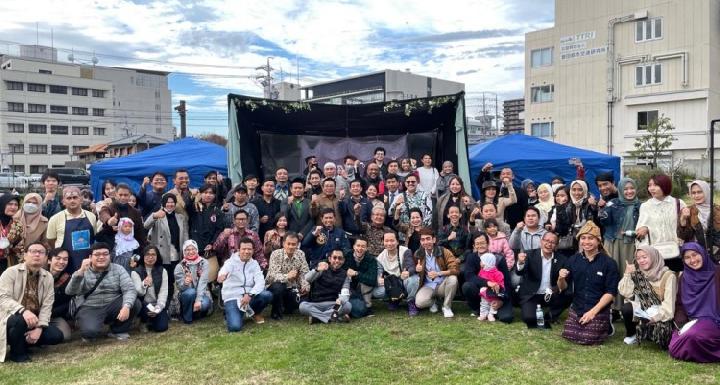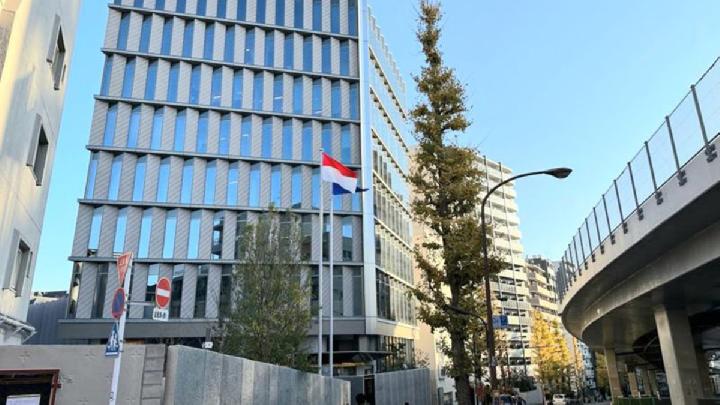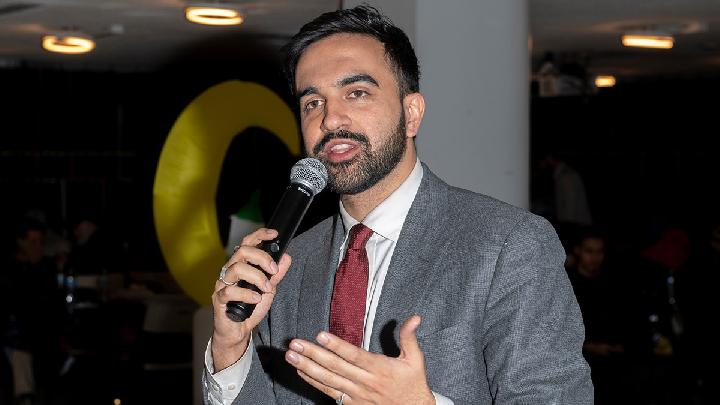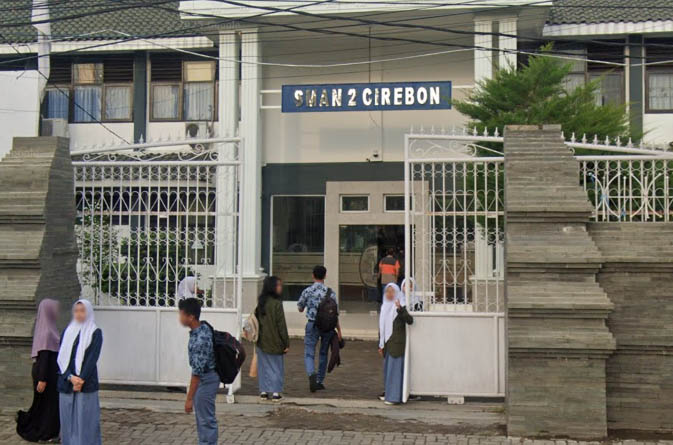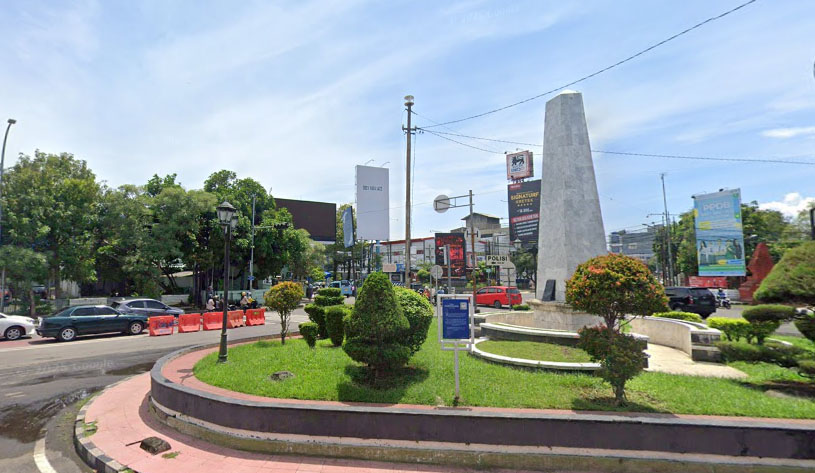When you work with footballers nothing much surprises you but then occasionally something does. Finding spent machine gun bullets in the garden of one of your club’s top players probably fits into that category.
Occasionally, when working as a player liaison officer for a big Premier League club, I would drop in on players’ houses just to see how they were and, if I am honest, to make sure they were looking after the place.
Many foreign stars – especially if they were young and single – would be in rented accommodation that we had found for them. They could get bored or lonely and both of those could be problematic in different ways.
That day was an eye opener, even for me. The bullet casings scattered across the lawn were actually from an Uzi 9mm submachine gun. They were blanks but even so. What or who had he been aiming at? My guess would have been one of his friends.
That particular player did struggle to be alone. On a further tour of the place, I found a pair of pink, fluffy handcuffs and a packet of condoms by his indoor swimming pool. I didn’t ask any questions on my way out.
For a good number of years, this was my world. Looking after the best interests of footballers at a big club in the south.
When you work with footballers nothing much surprises you but then occasionally something does (Paul Gascoigne is not involved in this story)
Occasionally, when working as a player liaison officer for a big Premier League club, I would drop in on players’ houses (Wayne Rooney and others pictured are not included in the story)
I found a pair of pink, fluffy handcuffs and a packet of condoms by one player's indoor swimming pool
Helping them, looking out for them, trying to give them the structure and the balance in their lives to hopefully help them be happier and more balanced and, as a result, play better and serve the club I worked for.
I used to say to them: ‘I am not your servant. I am here to service your needs, not your wants.’ Occasionally the lines could get blurred and yes, at times, it paid to turn a blind eye.
Players, for example, would gamble and occasionally would get into a bad place. One denied to me that he had a problem even though I had been tipped off by a local casino. When a staff member went to take his car for a service there were roulette chips spilling out of the glove compartment.
We all know players aren’t allowed to gamble on football. FA rules forbid it. Even I wasn’t allowed to do it. But some of them do it anyway.
One of them at my club – a big star – used to give his mate thousands of pounds in cash to take to the bookies. Proper old school. His mate would come back with the betting slip. Literally as long as my arm.
The same player used to smoke shisha at the training ground and it burned holes in the carpet. I persuaded him to pay for it to be repaired before the manager found out and fined him. He didn’t want to. In fact, he told me to: ‘F*** off.’ But he did it. And he thanked me later.
Smoking was a reasonably common vice, especially among some of the Eastern European players. They didn’t really try to hide it. It did get ridiculous when one of them went missing during half-time of a big game, though. We found him passed out in a disabled toilet, engulfed in cigarette smoke. He still played the second half.
On matchday and at training, at least we could keep an eye on players. They were all there where you could see them. Bliss. Away from work, though, boredom remains the modern footballer’s great enemy.
My colleagues and I would identify areas where particular players were vulnerable and find ways to prevent problems occurring. Some would be genuinely lonely, for example. Some would have friends but too many of the wrong type. Some would be too trusting and targeted and exploited by women, by criminals posing as friends and even by members of their own family.
One of our top players, for example, was constantly surrounded by other people. Maybe a dozen at a time. He also just couldn’t sit still.
At one rented property he had a par-3 golf hole built in his garden. The landlord wasn’t chuffed. Then he moved to another place while still contracted to pay rent on the first. He was paying tens of thousands of pounds a month on houses he wasn’t even living in.
Once, while returning from injury, the same player was asked to play in a reserve game up at a local League One club. He was late for kick-off. The reason? He had taken a car-load of mates with him and stopped to buy them all ice cream on the way. This is a player of worldwide repute who has more than 65 international caps for his country.
That player was particularly complex and we worked hard with him. His personal security was lax which made him vulnerable. His father was financially demanding while his single greatest fear was that his children – estranged from him in another country – would not get any of his money if he died.
He refused to take his driving theory test but would get behind the wheel anyway. And against all of this background, he was one of our very best players. It’s amazing what players will lock away in the back of their minds as soon as they step on to a football field.
You may ask about the roles of players’ agents in all of this? Why is there a need for player care when they are literally paying people to represent them? Well, my job was to service the best interests of the club, first and foremost. There is a difference.
I would trust and engage with some agents and others less so. My take was always that 20 per cent of them generally had the best interests of their players at heart while the other 80 per cent were in it for themselves. Others take a more generous view.
One player's father was financially demanding while his single greatest fear was that his children (None of the players in this picture were involved in this story)
I would simply say to the agents: ‘I will do as much or as little for your player as you want.’
Some of them I would never see again, while others would constantly be at the training ground. I actually saw one big-name player come to blows with his agent in my office. They were rolling around on the floor until I dragged them apart. They called it play-fighting but punches were thrown.
And then there were the wives and girlfriends. Many players had great and stable relationships, others less so. It wasn’t unknown for a player to sidle up to me after a game and say: ‘If she asks, tell her I was playing golf on Tuesday…’
This wasn’t just happening at my club of course. I remember a star defender at a big northern outfit had nowhere to go after telling one extra-marital ‘friend’ that he was a carpet salesman from Coventry. That all went fine until she saw him on the TV one Saturday holding a big trophy.
Some wives and girlfriends could be incredibly forgiving but then would run their actual homes with an iron fist. One player ordered a new TV only to be told by his wife that it was far too big and ostentatious. She sent it back. On the same day she took delivery of a new dressing table covered in Swarovksi diamonds.
There is no point pretending women weren’t an issue because they occasionally were. Post-season tours and parties would be particularly tricky.
Players would quite literally take their gatherings underground, hosting them in basements of big, rented mansions with certain female ‘guests’ invited and mobile phones left at the door.
Post-season tours could get lively, meanwhile, with players relishing the freedom of the end of a campaign and disappearing off in all directions in search of pleasure.
On one trip abroad there was supposed to be a midnight curfew and all seemed well when a group of the lads went out for a ‘sightseeing tour’ in a minibus. The only issue was that the vehicle had blacked out windows and two pole-dancing poles built into the back.
Needless to say, the lads were not alone. It was sightseeing – just of a different kind.
Post-season tours could get lively, meanwhile, with players relishing the freedom of the end of a campaign (none of the players pictures are involved in this story)
Some players would take risks to get what they wanted and the truth is that we took it all seriously (Angel Di Maria is not involved in this story)
Players were not allowed guests on away trips before games. Of course they weren’t. Very occasionally, though, a ‘friend’ would book herself in to a room a couple of floors below in the team hotel.
It wasn’t rocket science. Some players would take risks to get what they wanted and the truth is that we took it all seriously. The coaching staff needed the players to be asleep!
Not that the training ground was deemed completely off limit by some players, mind. There was a particular cupboard that we strongly suspected was occasionally used for illicit entertainment – all ‘a bit Boris Becker’ - but nobody was ever caught in the act. I do have the names of the suspects lodged in my mind, though.
More broadly, we would put together SWOT analyses for individual players to identify strengths, weaknesses, opportunities and threats. That way we could ideally help players with problems like languages and cultural and religious differences.
These things are a real problem in modern football and can lead to unhappiness, poor form and, most damagingly of all, cliques in a dressing room.
SWOT would also help to identify those players vulnerable to being exploited or used. As ever, some would relish the help. One senior player told my department we were worth five Premier League points a season, while others would push back against it.
I mean, when a player insists on paying a mate £100 a time to drive to a city centre restaurant to pick up £15 Margherita pizzas five nights a week what can you really do?
Occasionally, the manager and coaching staff would need a little help too. I remember after one game the boss, a foreigner, pulled me and asked me to explain what a particularly crude swear word actually meant.
I asked him why and he said: ‘Because the opposition manager has just called me it.’ In fairness, that particular manager – an Englishman – subsequently wrote to my guy and apologised for being a ‘neanderthal.’
Ultimately, it was all about trust. We tried to treat our players as assets and did all we could to give them an environment in which they could thrive.
There is no point pretending women weren’t an issue because they occasionally were (Curtis Jones and Saffie Khan are not involved in this story)
In terms of people who worked for them – whether it be cooks, nannies, cleaners, drivers, tutors – we would try and supply them from our trusted list and they all would sign Non-Disclosure Agreements to stop them gossiping or selling tittle-tattle to the media. On the whole, it worked. Not always, but usually.
Fan mail, on the other hand, was harder to police. It was amazing what people would send. Requests for money and autographs and advice and signed items were common, of course.
But so were letters of horrendous abuse – often neatly written and signed at the bottom – and even packages containing human excrement.
Most of it never got to the players, of course. We would sift out the really malicious or malevolent stuff and they would never know. At one point, we considered hiring someone specifically to look after the mailbag. Having said that, there was one England star who insisted on all his correspondence being dealt with by his mother.
I am still in football but now that I am no longer working directly with players, I sometimes get asked if I actually liked them. And the answer, on the whole, is that I did and I do. Many of them are funny, generous, humble and kind. And then there is the percentage that are ‘d***heads.’ Just like in any walk of life.
Equally, some are incredibly mature and will do things for fans and other people that never get publicised. Others just don’t seem to grow up.
One young player, for example, used to bang golf balls into the distance at the training ground and then tell a female staff member to pick them up. Amazingly, she did it until someone had a word with him.
Another got into an altercation with a girl in a nightclub and a drink was thrown. It was hard to know who was actually to blame but the player had form with women so to avert what could have been a very public problem, I wrote a letter of apology to appease the angry father.
After much wrangling and persuasion the player agreed to sign it – only to write his name so small that it was impossible to read. I sent it off anyway. Another crisis avoided.
The language of the dressing room has changed over the years and that’s for the better. Players have genuinely tried to embrace issues around diversity even if there is still some way to go.
I do recall one meeting when the first-team squad were being educated on the use of vocabulary around women, religion and nationality.
Some wives and girlfriends could be incredibly forgiving but then would run their actual homes with an iron fist (None of the people pictured are involved in this story)
One player from Eastern Europe – the players who tended to have the best sense of humour – pointed to a teammate and said: ‘Does this mean I can’t call him a French t**t anymore then?’ Everybody just collapsed laughing.
Players are fundamentally normal guys, really. With many of the same worries and insecurities as the rest of us. They can get star-struck too.
I will never forget loitering with a star of our game in the gents toilet in a restaurant on a pre-season tour. The reason? Zinedine Zidane was in one of the cubicles and my guy wanted his autograph. He got it, too.
Do I like the industry? That’s harder to answer. There can be a lot of jealousy inside a football club towards staff who work with the players. It can look like a glamorous job and to a degree it is.
People would want your job, both from outside the club and inside. At Christmas, for example, players would get super generous, handing out Rolex watches and cash to staff on the football side of the operation. News of that would spread through other departments of the club. A HR nightmare!
For me, it wasn’t about that. It was about serving the interests of the football club and making sure my phone was always on for that 11pm phone call from a player who needed something.
I should have kept one of those bullets as a souvenir, mind. After all, I had helped players dodge a few. As for the pink, fluffy handcuffs, I have tried to put that image out of my mind…

 3 months ago
72
3 months ago
72






























